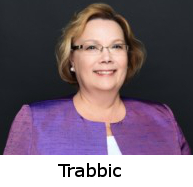Culture is everything at William Vaughn Company
By Jennifer Rieman, CAE, manager, public relations
Flexible. Unique. Dynamic. These are the words Sharon Trabbic, chief operating officer and Jennifer Compton, practice growth manager, use to describe the culture at William Vaughn Company, a midsized firm in Maumee.
 “It really is different here,” Compton said. “This is a cool place to be and an exciting place to be, which says a lot about our culture.”
“It really is different here,” Compton said. “This is a cool place to be and an exciting place to be, which says a lot about our culture.”
It’s the firm’s culture and forward-thinking policies that earned William Vaughn Company a spot on Accounting Today’s 2016 Best Accounting Firms to Work For list, according to Trabbic. While flexible schedules are more the norm today as firms and companies compete for talent, 15 years ago William Vaughn Company was in front of the trend when it introduced reduced hours.
“The partner group said, what if we let people determine the number of hours they want to work for the week, and then arrange our staffing accordingly and let people pick their own hours?” she said. “That was pretty radical then. Our women especially were extremely excited about that capability.”
The policy went a long way in retaining female employees, many of whom remain loyal to the firm. The result is an executive team that’s fairly evenly divided – 55% male and 45% female.
William Vaughn Company has managed what many in the accounting profession still struggle with: advancing women in the profession continues to present challenges. While women represent about half of new CPAs in the accounting profession, they’re only 14% of executives in business and industry and 19% of partners in CPA firms nationwide, according to research from the AICPA.
While there is much room for debate about how to best tackle these discrepancies, offering flexible schedules and a culture that supports truly taking advantage of them can help both women and men. Some William Vaughn Company employees work exclusively from home, while others work part-time hours to allow for family commitments.
 “If someone, male or female, wants to work a reduced schedule for whatever reason, we are happy to try and accommodate them,” Trabbic said.
“If someone, male or female, wants to work a reduced schedule for whatever reason, we are happy to try and accommodate them,” Trabbic said.
Offering flexible schedules was just one of the solutions the firm came up with back in the early aughts. The other was a move away from the conventional salary plus bonus model to an hourly compensation structure for the vast majority of the staff. Employees are paid for the hours they work and also receive overtime.
This departure from the salary model can be a bit difficult to explain to prospective employees, particularly college students, but once young people join the firm as interns, Trabbic and Compton find the culture explains itself.
“When we show people the math, they realize that if they put in the hours they actually have the ability to make more than at other firms and they can set the pace of our own career,” Compton said. “It can be a little intimidating for younger people. But what we’re finding is as they get older they realize the advantage and they’re staying.”